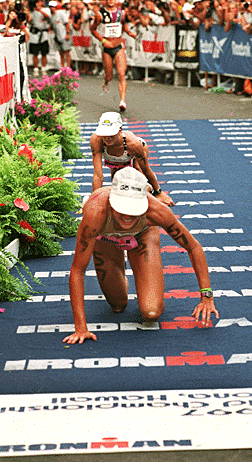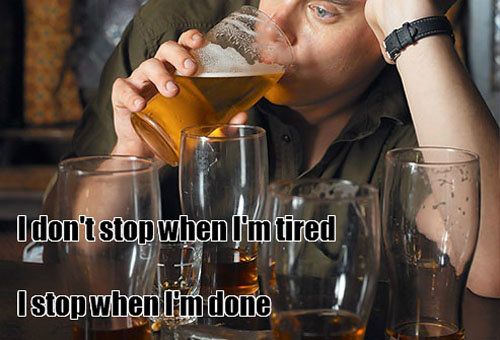 Our bodies have a way of giving us important signs when things aren’t quite right. For some of us we simply put on weight, others get sick more often, some can’t train as hard or as often and for me, it’s my heart.
Our bodies have a way of giving us important signs when things aren’t quite right. For some of us we simply put on weight, others get sick more often, some can’t train as hard or as often and for me, it’s my heart.
For many years now I’ve suffered from Atrial Fibrillation. And for those playing at home,that’s an irregular heartbeat – heart palpitations. They come on when my body is fatigued or if my personal stress levels are high. What typically happens is that my heart will constantly be in an irregular beat for anywhere between 12 to 24 hours before it randomly stops. (The palpitations that is, not my heart) And as you can probably appreciate this makes it hard to walk up stairs, never mind train or in fact sleep.
Typically I would experience this about 2 to 4 times a year on average, till now. I’m now experiencing this more often and over the past 6 months I’ve probably had it 5 times. So where am I going with this? A pity party for Tri Monkey? Definitely not.
Over the past few years I’ve been slowly increasing training levels, distances and intensity, as my goal events get longer and longer. However during this whole time, I haven’t altering my diet or alcohol intake in any significant way.
Can you see where I’m going with this now?
I recently attended a training camp where an inspirational 67-year-old triathlete and coach, Allan Pittman, spoke about his journey. At 67 he’s still qualifying for Kona and delivering results that I can only dream of. How does he keep this up for so long? And what does he do differently to every other 67 year old out there?
In its simplest form, the harder and longer you train the more you have to look after body. In my case, if I don’t eat well, cut down the alcohol and ensure I get ample sleep, my heart gives me a sign that’s hard to ignore.
Training well and keeping fit is only one side of the equation. In order to ensure that you can continue to train well you also have to do a few other things. This is what I’ve learnt over time and recently reinforced by Allan:
Stretching and Flexibility
Establish a regular routine of stretching. At 67 Allan could still touch the floor with his knuckles and straight legs. Just sayin’. If you work at a desk try and take regular brakes, walk around and stretch the hip flexors and lower back.
Massage
Incorporate regular massage sessions into your program to release some of the hard to get at places that only a professional can assist with. I recently learnt where my peroneus longus is, and it’s not easy to release.
Diet
Everyone is different and as I’m not a qualified nutritionist I’ll let you do your own research regarding what nutrition is right for you. But what I can say is that if you’re not eating well, your body will not perform anywhere near its full potential. Allan’s advice was “no wheat, no dairy, no sugar”.
Recovery
Get plenty of sleep and when your program says ‘rest day’ … take a rest! Listen to your body and ease up when needed. Smashing out a session when your body hasn’t fully recovered isn’t going to do you any favours.
Smoking
Thats just stupid.
Alcohol
Alcohol is a depressant drug that causes dehydration and basically detracts from performance. I’ll let you draw your own conclusions about what you should do here. (I’m not your Dad.)
Hydrate
Drink plenty of water throughout the day. Dr Google suggests around 2 to 3 litres per day on average. Get into the habit of carrying a water bottle wherever you go. (Always a tell tale sign of a die hard triathlete ha ha)
Now for the fine print:
You don’t have to do all of this at once. It takes time and practice to make these changes in order for them to slowly become habits. And for some, you may still be fine to have a huge night out on the drink before a big event the next day. But not for this little monkey!
Its taken me a while but I have finally realised I have to make a few changes if I want this body of mine to keep up with the pace I’m setting. My immediate changes are going to be:
- No more alcohol during the week
- No chocolate during the week and reduce sugar in general
- Healthier choices for lunch – preferably pack my own
- Regular stretching sessions throughout the week
Now to some, these may seem very easy but for those who know me, I have a very sweet tooth and love a glass of red (or two) with dinner each night, so this is going to be a challenge.
So I ask you this question: Is your body functioning to its full potential? Have you been ignoring the signs like I have? Is there something from the list above that might give you the edge next time you’re on the Parkrun start line, or about to embark on your first Ironman event?
Let me know your thoughts. I’d love to hear from you.
Keep Smiling Tri Monkeys
CLICK HERE TO SUBSCRIBE
G’day TriMonkey, great article and what you have written resonates with me. I especially like the advice of listening to your body. I must admit I personally got caught out earlier this year by not having adequate rest periods even though my lower back was screaming at me and this ended up costing me a small fortune in doctors bills and 5 months of no running:-(